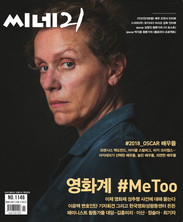관객과의 대화에서 박찬욱 감독이 김기영 감독에 대해 말하는 걸 들은 적이 있다. ‘만약 김기영 감독이 한국이 아닌 다른 나라에서 태어났더라면 오늘날 영화계에서 세계적인 대가로 인정받았을 것’이라는 말이었다. 김 감독은 1960∼70년대에 영화감독으로 작업하는 데 있어 넘어서야 할 장애물이 검열, 물적 자원의 부족, 지지를 보내지 않는 관객 등 너무 많았다. 그렇지만 박 감독이 언급했던 것이 이런 실질적인 곤경은 아니었으리라 생각한다. <하녀>나 <이어도> 같은 영화들은 이런 장애물을 극복하는 데 성공하여 영화 매체를 대담하고 혁신적인 방향으로 밀어붙였다. 그러나 세계 영화계는 결코 알아채지 못했다. 김기영 감독은 작은 나라에 갇혀 있었고, 그는 영원히 세계적인 감독이 아닌 한국 감독으로 머물러 있다. 현대 소설가 밀란 쿤데라는 <사유하는 존재의 아름다움>이라는 책에서 체코 작곡가 레오시 야나체크에 대해 유사한 말을 한 적이 있었다. 20세기의 가장 혁신적인 작곡가 중 한명임에도 불구하고, 그가 첫 오페라를 작곡한 지 20년이 지난 1906년에야 그것이 해외에서 상연되었다. (그리고 그때가 돼서 그의 혁신들 중 많은 부분은 더이상 새로워 보이지 않았다.) 고국의 ‘작은 맥락’ 내에서 보았을 때 그의 음악은 이상하고 이해할 수 없는 것이었다. 현대음악이라는 ‘더 큰 맥락’ 속에서 봐야 의미가 성립될 수 있었던 것이었는데, 그런 관점으로 그를 봐준 사람은 거의 없었다.
쿤데라는 “접근하기 어려운 언어 뒤에 격리되어, 작은 유럽 국가들(그들의 삶과 역사와 문화)은 잘 알려지지 않았다. 사람들은 자연스럽게 그들의 예술이 국제적 인정을 받지 못하는 이유로 언어가 일차적인 장애라고 생각한다. 그러나 오히려 그 반대다. 그들의 예술을 방해하는 것은 모든 것과 모든 사람들(외국인들뿐만 아니라 비평가, 사학자, 동포들까지)이 예술에 거창한 민족적 초상화를 연결시키고, 놔주려 하지 않는 데 있다.”
유감스럽게도 사실은 프랑스나 미국 같은 큰 나라의 예술가라면 이런 지역적 맥락화에서 훨씬 쉽게 벗어날 수 있고, 그래서 예술가로서 더 진지하게 고려되기 쉽다는 것이다. 데이비드 린치를 ‘미국 감독’이라고 묘사할 때는 마치 그의 눈색깔을 묘사하는 때와 다름없다. 그가 소속한 문화의 대표자로서가 아니라, 근본적으로 한 개인으로 여겨진다는 것이다. 밀접하게 맺어진 가족과도 같은 한국에서 태어난 감독의 경우 그렇게 된다는 것은 쉬운 일이 아니다.
홍상수, 김기덕, 박찬욱, 봉준호, 김지운, 장선우…. 물론 그들은 한국영화를 만든다. 그들 영화에 나오는 사람들은 대부분 한국인이고, 작품의 틀을 짓는 문화와 역사도 한국의 것이다. 그러나 그들의 예술 그 자체는 한국의 것인가?
자신의 잠재적 가능성을 다 실현하고자 하는 예술가에게, 언젠가 고국의 사회적 관습과 기대에서 벗어나는 것이 필요하게 될 수 있다. 쿤데라는 소설가 앙드레 지드의 말을 인용한다. “자신만의 가족, 자신만의 방, 자신의 과거보다 더 위험한 것은 없다…. 그런 것들을 떠나야만 한다.” 그렇다고 예술가들이라면 다 이민가야 한다는 것은 아니고, 고국에서의 압박 때문에 뒤로 물러날 것이 아니라 세계 예술 공동체에 참여해야 한다는 것이다.
만약 한국의 제일 유명한 감독들이 지역적 관심사를 버리기 시작한다면 한국은 어떻게 반응할까? 만약 그들이 해외에 영화를 만들러 가거나 그들의 작품이 너무 ‘낯설고’, ‘개인적’이거나 ‘이국풍’으로 느껴지기 시작한다면 말이다. 권위있는 대학으로 유학 간 사랑하는 아들이나 딸을 바라보는 자랑스런 부모처럼 곁에 있어줄까? 아니면 배신감에 치를 떨고 돌아서버릴까?
At a Q&A session, I once heard Park Chan-wook comment about director Kim Ki-young. "If he had been born into another country besides Korea, he would be recognized today as a master of world cinema." Kim had many hurdles to overcome working as a filmmaker during the 1960s and 1970s: censorship, a lack of material resources, an unsupportive audience. And yet I don't think it was these practical challenges that Park was referring to. Films such as The Housemaid (하녀) or Iodo (이어도) were successful in overcoming these obstacles to push the medium of cinema in bold new directions. But world cinema never noticed: Kim Ki-young was trapped in a small nation, and he remained forever a Korean filmmaker, not a world filmmaker.
In a book called Testaments Betrayed, the contemporary novelist Milan Kundera (밀란 쿤데라) makes some similar observances about the Czech composer Leos Janacek (레오시 야나체크). Despite being one of the most innovative composers of the twentieth century, it wasn't until twenty years after his first great opera was composed in 1906 that it was performed abroad (by which time many of his innovations no longer seemed as new). Seen from within the "small context" of his home country, his music was strange and incomprehensible. It only made sense within the "larger context" of modern music, but few people viewed him in that light.
Kundera says: "Secluded behind their inaccessible languages, the small European nations (their life, their history, their culture) are very ill known; people think, naturally enough, that this is the principal handicap to international recognition of their art. But it is the reverse: what handicaps their art is that everything and everyone (critics, historians, compatriots as well as foreigners) hooks the art onto the great national family portrait photo and will not let it get away."
The unfortunate truth is that it is much easier for artists from large nations such as France or the U.S. to break free of this local contexualization, and to be considered more seriously as an artist. David Lynch is described as an American filmmaker in the same way one might describe the color of his eyes. He is seen as an individual, not primarily as a representative of his culture. For a filmmaker born in the close-knit family that is Korea, this is not so easy.
Hong Sangsoo, Kim Ki-duk, Park Chan-wook, Bong Joon-ho, Kim Jee-woon, Jang Sun-woo... Of course they make Korean films. The people who populate their films are Korean, the culture and history that shape the works are Korean. But the art itself, is that Korean?
For an artist striving to reach his or her potential, it may become necessary one day to break free from the expectations and conventions of one's home society. Kundera quotes the novelist Andre Gide: "There is nothing more dangerous for you than your own family, your own room, your own past... You must leave them." This doesn't mean that all artists should emigrate, but that one participates in the world artistic community without being held back by pressures at home.
How will Korea respond if its best-known filmmakers start to abandon local concerns -- if they go abroad to make films, or if their works start to seem too "strange," "personal," or "foreign?" Will it stand by like a proud parent watching a beloved son or daughter travel abroad to a prestigious university? Or will it feel the sting of betrayal, and turn its back?

